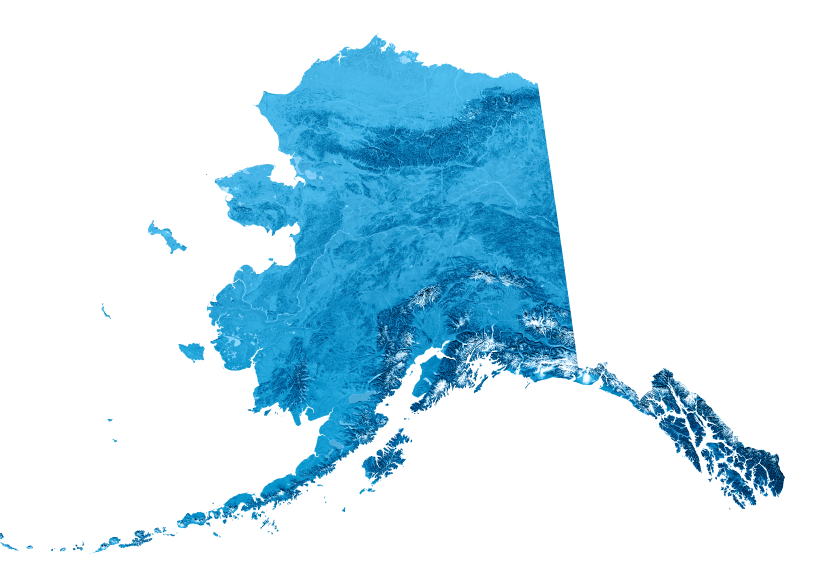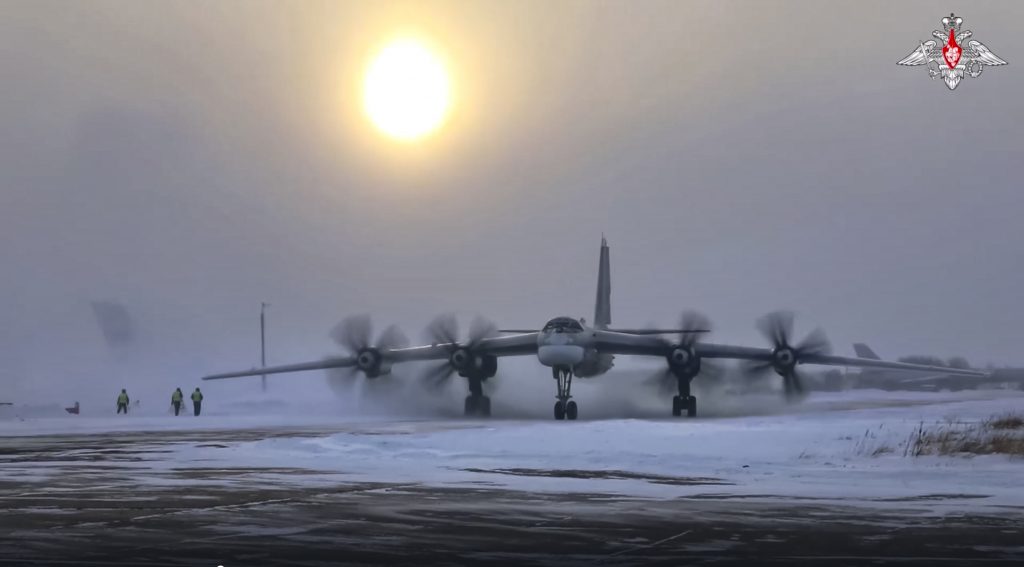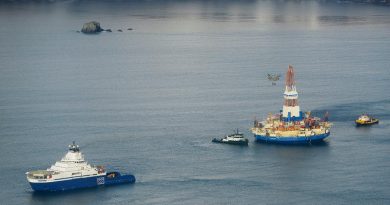NORAD fighter jets intercept Russian, Chinese bombers off Alaska

Fighter jets from the North American Aerospace Defense Command (NORAD) intercepted Russian, Chinese bombers off Alaska on Wednesday.
In a tweet on Thursday, NORAD said a combination of fighter jets, satellites, and radars were used to detect, track, and intercept the Russian and Chinese aircraft:
.@NORADCommand employed a layered defense network of fighter aircraft, satellites, and ground-based and airborne radars in seamless interoperability to detect, track, and intercept two Russian TU-95 and two PRC H-6 military aircraft operating in the Alaska ADIZ on July 24, 2024. pic.twitter.com/YvG1cu31Ni
— North American Aerospace Defense Command (@NORADCommand) July 25, 2024
NORAD is a joint Canada-U.S. command that monitors and responds to air and maritime threats.
Not seen as a threat: command
On Wednesday, the joint command detected the aircraft—two Russian TU-95 bombers and two Chinese H-6 bombers—off the coast of Alaska in the Alaska Air Defense Identification Zone (ADIZ)
The ADIZ is not part of American airspace but is an area where planes must identify themselves and their intentions before entering.
Canadian and U.S. fighter jets conducted the intercept.
“The Russian and PRC aircraft remained in international airspace and did not enter American or Canadian sovereign airspace,” the command said in a statement.
“This Russian and PRC activity in the Alaska ADIZ is not seen as a threat, and NORAD will continue to monitor competitor activity near North America and meet presence with presence.”

The intercept happened the same week the U.S. Department of Defense released its updated Arctic strategy on July 22, which flagged increasing cooperation between Russia and China in the Arctic as having the potential to “alter the stability and threat picture” of the region.
In subsequent days, Russia rebuked this assertion saying Moscow and Beijing’s Arctic initiatives were not aimed at particular countries. A Russian foreign ministry spokesperson later claimed the defense document itself “clearly aimed at escalating military and political tensions in the region.”
Comments, tips or story ideas? Contact Eilís at eilis.quinn(at)cbc.ca
Related stories from around the North:
Canada : Canadian military says it has tracked, stopped China surveillance in Arctic waters, The Canadian Press
Finland: Russian cyber attacks, espionage pose growing threat to Finnish national security, Yle news
Iceland: Iceland authorizes U.S. submarine service visits, Eye on the Arctic
Norway: Russian jamming disrupting GPS signals for Norwegian aviation almost daily, The Independent Barents Observer
Russia: Russia accuses US of stoking tensions in the Arctic, The Independent Barents Observer
Sweden: Swedes must mentally prepare for war, says military top brass, Radio Sweden
United States: Pentagon warns of potential Russian action in Arctic—including jamming GPS satellites, CBC News



